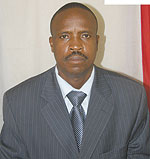There is no doubt that Rwanda has registered huge success in educating her population. In fact Rwanda has the highest number of primary school enrolment in sub-Saharan Africa and according to the economist world rankings; Rwanda ranks the sixth in the world in Primary school enrolment!Also the Government should be commended for the educational reforms that have been instituted in a bid to improve the quality of education.


There is no doubt that Rwanda has registered huge success in educating her population. In fact Rwanda has the highest number of primary school enrolment in sub-Saharan Africa and according to the economist world rankings; Rwanda ranks the sixth in the world in Primary school enrolment!
Also the Government should be commended for the educational reforms that have been instituted in a bid to improve the quality of education.
Amongst the introduced reforms, is the textbook policy that allows private publishers to supply textbooks in schools both primary and secondary schools.
The current textbook liberalization policy has increased the number of textbooks in schools as opposed to the previous policy, where the government had the monopoly of supplying the textbooks through government printing press.
Due to inefficiencies and bureaucracies associated with the latter, textbooks (we may as well call them pamphlets) were very few and as such, the target was to ensure that at most teachers got instructional textbooks.
This meant that the textbooks were only limited to teachers.
Students relied on their teachers for notes and other explanations.
Another notable factor that comes with current textbook policy is the heavy budget, because text books are very expensive. This means that government has prioritized and put increasing textbooks in schools on top of its agenda.
The current student textbook ratio stands at 1:3 and the target is to make it 1:1 by the year 2014-I stand to be corrected if these statistics are inaccurate.
In short the government is doing a good job, and the current textbook policy is appropriate. However, when it comes to utilization and usage of the supplied textbooks in schools, it leaves a lot to be desired!
The government’s strategy to increase access, such that both the teachers and students get enough textbooks seems not to be producing the desired results.
In practice, this strategy would make teaching and learning easier and smoother. There is no doubt that textbooks are necessary. Because they provide teachers with guidance on what to teach and how to teach it, textbooks save time it would take to invent all activities and materials teachers would need to do by themselves.
They also give inexperienced teachers ideas for ways to teach, that they might not be able to come up with themselves.
Textbooks enable learners to read more on their own and discover more ideas that teachers might not have otherwise captured.
Unfortunately, this has not been the case! In our country, books are supplied to schools and they remain in store rooms (not libraries) or in the shelves.
As a teacher trainer I have witnessed this situation first hand, where books are supplied and kept in designated store rooms such that they remain "safe”.
This scenario runs across the whole country especially in public schools. I will illustrate my case with the latest experience I got from Rwimitereri primary school in Murambi, Eastern province.
On 7th, 8th, 14th May this year, I was conducting training sessions for the teachers from the above mentioned area. We had 80 trainees from both primary and secondary schools.
Although the focus was on training these teachers on improving their English we ended up tackling the basics on textbook handling and utilization skills.
From these teachers, I learn that indeed for most schools when books are supplied they remain in store rooms. At Rwimitereri P/school I witnessed textbooks which were supplied in 2004 and they were still lying in stores!
These books were still new without even the school stamp! From the discussions I had with the teachers I realized that books are supplied, schools receive them and they are kept.
One of the causes of such is that there are no clear instructions on how these books should be used.
Head teachers keep them safely and wait in case the ministry comes to audit it will find these books intact and well kept! Students are not allowed to access these books in case they spoil them!
I would recommend the ministry of education, to work with its development partners and design a strategy to train teachers, and equip them with skills that would help them to use and utilize textbooks that are supplied to them.
Otherwise the good intentions of increasing textbooks in schools for easy access and the heavy expenditure that goes with it is going to remain unproductive for the years come.
The author is an educationist and the founder of Rwanda Book Development Initiative.
rwabodirwanda@yahoo.com


